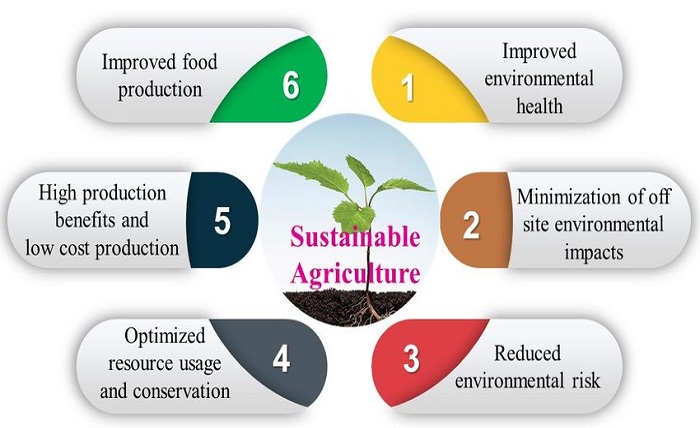The Importance of Sustainable Agriculture: A Whole Guide

Sustainable agriculture is a vital aspect of modern farming practices that focuses on the long-term health of the soil, water, and air, as well as the well-being of the farmers and consumers. It is an approach that aims to meet the needs of the present without compromising the ability of future generations to meet their own needs. In this article, we will explore the importance of sustainable agriculture and discuss the various practices that contribute to its success.
What is Sustainable Agriculture?
Sustainable agriculture is a system of farming that seeks to balance the needs of the present with the potential for future generations. It emphasizes the use of natural resources efficiently and responsibly, while minimizing the negative impacts on the environment. This approach involves a range of practices, including crop rotation, soil conservation, integrated pest management, and the use of organic or low-input farming methods.
Read more about home-goods
Benefits of Sustainable Agriculture:
1. Environmental Benefits: Sustainable agriculture helps protect the environment by reducing soil erosion, conserving water resources, and minimizing the use of synthetic fertilizers and pesticides. These practices can help maintain the health of ecosystems and promote biodiversity.
2. Economic Benefits: Sustainable agriculture can lead to increased productivity and profitability for farmers. By using natural resources efficiently and reducing the need for costly inputs, farmers can lower their expenses and increase their income.
3. Social Benefits: Sustainable agriculture can contribute to the well-being of farmers and consumers. It can provide farmers with a more stable income and better working conditions, while consumers can enjoy healthier, more nutritious food.
Practices of Sustainable Agriculture:
1. Crop Rotation: This practice involves rotating crops between different fields or sections of a field to prevent soil erosion and maintain soil fertility. It also helps control pests and diseases by breaking their life cycles.
2. Soil Conservation: Soil conservation practices aim to protect and improve the quality of soil. These practices may include reducing tillage, using cover crops, and implementing crop residue management techniques.
3. Integrated Pest Management: This approach involves using a combination of natural and chemical methods to control pests. It focuses on identifying and managing pest populations, rather than relying solely on chemical pesticides.
4. Organic or Low-Input Farming: Organic farming involves the use of natural fertilizers and pest control methods, while low-input farming focuses on reducing the use of synthetic fertilizers, pesticides, and other inputs.
Conclusion:
Sustainable agriculture is a vital approach to modern farming that seeks to balance the needs of the present with the potential for future generations. By implementing sustainable practices, farmers can protect the environment, conserve resources, and promote food security. As consumers, we can support sustainable agriculture by choosing to purchase food from farmers who prioritize sustainability.
FAQ:
Q: What is sustainable agriculture?
A: Sustainable agriculture is a system of farming that focuses on the long-term health of the soil, water, and air, as well as the well-being of farmers and consumers.
Q: What are the benefits of sustainable agriculture?
A: The benefits of sustainable agriculture include environmental benefits, economic benefits, and social benefits.
Q: What are some practices of sustainable agriculture?
A: Some practices of sustainable agriculture include crop rotation, soil conservation, integrated pest management, and organic or low-input farming.
Q: How can consumers support sustainable agriculture?
A: Consumers can support sustainable agriculture by choosing to purchase food from farmers who prioritize sustainability and by advocating for policies that promote sustainable farming practices.







